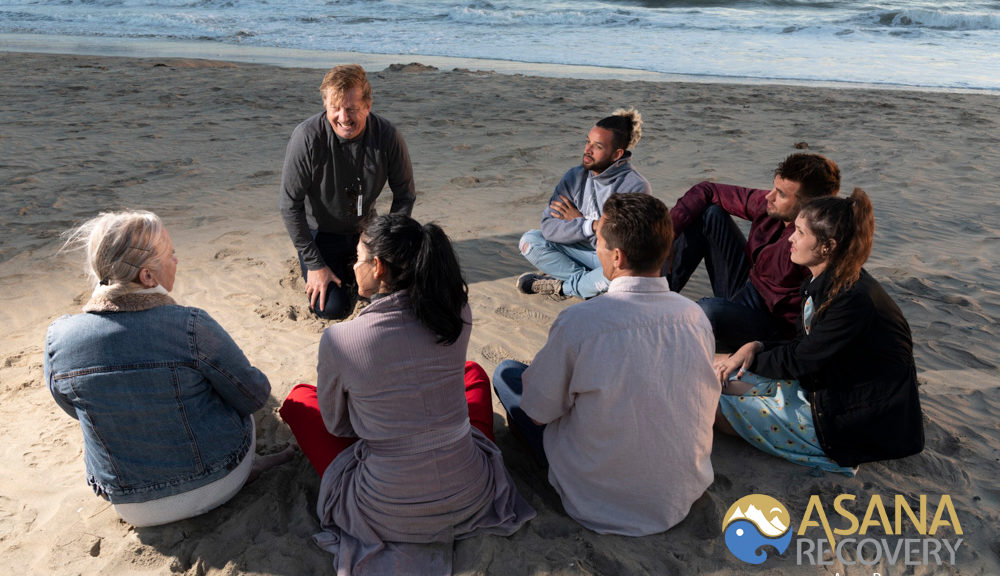
Group Therapy
Our treatment program for opioid addiction has an emphasis on educating our client on self-awareness so that they can identify the source of their pain. By knowing what triggers their pain, clients can apply their knowledge on alternative treatments that can help them manage their condition.
COSTA MESA, Calif. (PRWEB)
February 12, 2020
Asana Recovery has published an online page documenting alternatives and advantages to managing pain using non-opioid strategies entitled, “Why You Should Consider Alternatives to Opioids.” The facts of the opioid crisis are startling. For example, according to a 2019 National Survey on Drug Use and Health, 10.3 million people misused prescription opioids in 2018. Additionally, more than 130 people died everyday from opioid-related drug overdoses. The effects of the epidemic are undeniable and have brought to light how opioids were prescribed openly as a way to manage pain.
As a residential addiction treatment program, Asana Recovery has had its share of clients who have entered their program because of an addiction to opioids. More than 30 percent of their residents have entered the program because of an addiction related to opioid misuse. Often, their clients’ dependency can be traced from a prescription to treat an ongoing medical condition or to manage pain.
“We had a client come in last year who was initially prescribed a hydrocodone/acetaminophen medication to treat an injury she sustained,” shares Tania Maalouy, LVN. “Her condition was complicated by what was later determined to be a mood disorder, which intensified her struggle to cope with the pain. As her condition worsened, she was using and abusing the opioid medication to cope with physical and mental pain.”
The opioid addiction treatment program at Asana Recovery includes a full medical work-up of the client when they first enter the center. This assessment informs the treatment plan for each client. “It is important to have a complete picture of a client’s medical and mental health because there is often a link between the two. It is common for an individual to have a substance addiction because of an ongoing medical issue,” says Grant Clark, LCSW. “This also allows us to form a treatment plan that is best for the individual’s needs.”
In the document, “Why You Should Consider Alternatives to Opioids,” it cites examples of both physical, non-opioid pain management as well as mental, non-opioid pain management. Alternatives to manage mental pain with non-opioid strategies include Cognitive Behavioral Therapy (CBT), a therapy approach where a person learns how to recognize emotions, thoughts, and behaviors and adjust their perspective on them. CBT has recently been named by popular celebrities to have helped them in their recovery.
To manage physical pain, the article names acupuncture, exercise, nerve blocks, non-opioid medications, physical therapy, radiofrequency ablasion, spinal cord stimulation, therapeutic massage, Transcutaneous Electrical Nerve Stimulation Therapy (TENS), and yoga as alternatives to opioid pain management.
“Our treatment program for opioid addiction has an emphasis on educating our client on self-awareness so that they can identify the source of their pain,” says Adam Shandrow, COO. “By knowing what triggers their pain, clients can apply their knowledge on alternative treatments that can help them manage their condition.”
Since opening in 2017, Southern California based Asana Recovery has offered unique and innovative ways to treat the disease of addiction. Harnessing the efficacy of traditional, evidenced-based methods, while incorporating alternative techniques, Asana Recovery offers services for the full spectrum and phases of addiction recovery. While in treatment, clients experience a life-skills approach that immerses the individual in a community or family setting to ensure that the transition back to sober living is a smooth and seamless process. It provides 24/7 supervised support with round-the-clock staff onsite, which is critical for the detox phase.
About Asana Recovery
Asana Recovery is a private, for-profit, health care organization located in Costa Mesa, California. Asana Recovery provides a complete and individualized addiction treatment program using traditional as well as innovative or alternative methods to treat addiction. It provides 24/7 supervised support with round-the-clock staff onsite. Its mission is to provide a healing environment where clients acknowledge and understand their addiction, embrace a lifestyle of productivity, and find the fulfillment that comes in serving others. Asana Recovery is accredited by The Joint Commission, ASAM Level of Care certified, CARF accredited, and licensed by the Department of Health Care Services (DHCS) in California. More information about Asana Recovery can be found online at http://www.asanarecovery.com
Share article on social media or email:

